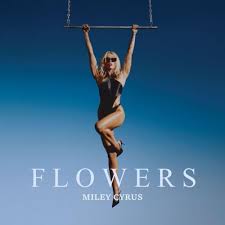 When Kendrick Lamar dropped “Not Like Us” in May 2024, it wasn’t just another diss track—it was a seismic cultural event. For years, hip-hop had simmered in the era of digital posturing and subliminal disses. Then Kendrick came along and reminded everyone what it means to actually end a rap beef. The track didn’t just take aim at Drake—it detonated an entire mythology, redefined the power dynamics in hip-hop, and gave the genre one of its most thrilling moments in decades.
When Kendrick Lamar dropped “Not Like Us” in May 2024, it wasn’t just another diss track—it was a seismic cultural event. For years, hip-hop had simmered in the era of digital posturing and subliminal disses. Then Kendrick came along and reminded everyone what it means to actually end a rap beef. The track didn’t just take aim at Drake—it detonated an entire mythology, redefined the power dynamics in hip-hop, and gave the genre one of its most thrilling moments in decades.
But to call “Not Like Us” a “diss track” feels almost too small. It’s an anthem. A street chant. A West Coast victory parade disguised as a beatdown. In five minutes, Kendrick Lamar managed to be brutal, hilarious, and surgical—all while dropping one of the most infectious hooks of his career. It’s the rare song that blurs the line between cultural moment and pop hit, and it may go down as the definitive chapter in the greatest rap feud of the 2020s.
The Spark That Lit the Fuse
The story of “Not Like Us” can’t be told without the firestorm that led to it. The tension between Drake and Kendrick Lamar had been simmering for over a decade—ever since both artists emerged as the twin titans of modern rap. Their early collaborations, like “Poetic Justice” and “Buried Alive Interlude,” hinted at mutual respect but also competition. Each wanted to be the voice of a generation.
Things came to a boil in 2024 when Kendrick delivered his guest verse on Future and Metro Boomin’s “Like That.” That verse—terse, icy, and dripping with contempt—called out the “Big Three” narrative (Drake, J. Cole, Kendrick) and made it clear he didn’t see himself as part of any trinity. “Motherf*** the Big Three, n***a, it’s just big me,” he rapped, instantly sparking the year’s most anticipated rap war.
Drake fired back with a series of tracks—“Push Ups,” “Taylor Made Freestyle,” “Family Matters”—but while some landed, others felt defensive or overproduced. Kendrick, on the other hand, waited. Then, like a boxer studying an opponent’s weaknesses, he unleashed “Meet the Grahams” and “Not Like Us” in rapid succession, obliterating Drake’s public image in the process.
“Not Like Us” was the knockout punch—a diss so devastating it transcended hip-hop gossip and became a cultural phenomenon.
The Mustard Beat: An Instant Classic
Produced by DJ Mustard, “Not Like Us” is built around the kind of West Coast bounce that defined the early 2010s but had faded from mainstream prominence. The beat is deceptively simple—crisp handclaps, snappy snares, and a thudding bassline that hits like a hydraulic lowrider. It’s pure Compton, pure California energy.
But Kendrick’s genius lies in how he uses that energy. He takes Mustard’s party-ready instrumental and weaponizes it. Every line lands like a punch, but the rhythm makes it impossible not to move. The effect is hypnotic—you’re nodding your head to some of the most cutting lyrics in years. It’s the ultimate irony: a diss track you can play at a barbecue.
And that’s exactly what happened. Within hours of its release, “Not Like Us” was blaring from car windows, gym speakers, and block parties from Inglewood to Atlanta. On TikTok, dance challenges emerged almost instantly. Kendrick had turned humiliation into a club anthem. The beat made people move; the words made them choose sides.
The Lyrics: Death by a Thousand Punchlines
“Not Like Us” isn’t just vicious—it’s strategically vicious. Every bar hits a nerve, every punchline is designed to stick. Kendrick doesn’t just attack Drake’s artistry; he dismantles his credibility, his persona, his entire empire.
The recurring “A minor” line—“Tryna strike a chord and it’s A minor”—is a perfect example of how Lamar blends humor and venom. It’s musically clever and devastatingly petty. Elsewhere, he jabs at Drake’s alleged exploitation of younger artists (“Certified Lover Boy? Certified pedophile!”), and with surgical precision, he flips Drake’s own aesthetic back on him.
Perhaps the most striking part is the repeated refrain: “They not like us.” On the surface, it’s a chant of superiority—a call to arms for Compton, for real hip-hop, for authenticity. But deeper down, it’s a spiritual declaration. Kendrick isn’t just saying he’s better—he’s drawing a moral line. It’s him versus the artificial, the shallow, the commercial. “Not Like Us” becomes both personal and philosophical.
He’s essentially saying: This is what real rap sounds like. This is what truth feels like.
The Public Spectacle: Hip-Hop’s Super Bowl
The internet lit up like a stadium. Fans dissected every lyric, every subliminal reference, every piece of imagery. Within 24 hours, “Not Like Us” had over 10 million streams. Memes flooded Twitter and Reddit. DJs across the country played the track back-to-back. Even celebrities began choosing sides—some openly, some quietly.
It wasn’t just about Kendrick vs. Drake anymore. It was about authenticity vs. artifice. About who owned the culture.
And for the first time in a long while, rap fans were united—not in consensus, but in passion. Everyone was talking about hip-hop again, arguing over lines, quoting verses, making think pieces. The same genre that had been accused of losing its bite suddenly had fangs again.
This was a public execution, but it was also a celebration. Kendrick didn’t just win a beef—he reignited an art form.
The Symbolism: Compton as the Cultural Epicenter
Throughout “Not Like Us,” Kendrick positions himself as the guardian of hip-hop’s moral center. The West Coast isn’t just a backdrop; it’s a character in the story. When he chants “Mustard on the beat, ho,” it’s more than a tag—it’s a victory flag.
The video drove that point home. Directed by Dave Free and Kendrick himself, it’s a love letter to Compton. Kendrick dances through neighborhoods, surrounded by kids, lowriders, and generations of Black joy. It’s defiant, triumphant, and deeply local. In a way, the video flips the diss’s meaning—it’s no longer about destruction but renewal. Kendrick takes all the negative energy and transforms it into celebration.
In doing so, he reasserts Compton’s place as the beating heart of American hip-hop, from Dre to Kendrick. The city that birthed gangsta rap now delivers its most intellectual street poet—and “Not Like Us” is his victory lap.
The Drake Fallout
For Drake, “Not Like Us” marked a career-defining wound. He responded with posts, edits, and cryptic lines—but the damage was done. His cool, untouchable image cracked under the weight of Kendrick’s precision strikes. Even some longtime Drake fans admitted that the track had shifted the narrative.
What made it even more brutal was how fun Kendrick made it. He didn’t sound angry or bitter—he sounded free. His laughter between bars, his swaggering delivery, his mockery of Drake’s style—it all felt effortless. Drake was playing chess; Kendrick brought the board down on his head.
“Not Like Us” proved something that numbers and streaming charts can’t measure: cultural dominance. Drake may still sell out arenas, but for a moment, Kendrick owned the conversation. Every post, every remix, every headline revolved around his name.
And in hip-hop, that’s the real crown.
The Cultural Resonance
Beyond the beef, “Not Like Us” tapped into something larger—a longing for realness. In an era where authenticity is algorithmic and artists are brands first, Kendrick Lamar reminded everyone what raw, fearless creativity sounds like.
His diss wasn’t about marketing—it was about integrity. It was about defending the soul of the genre from corporate dilution. And that’s why the track hit so hard. It wasn’t just one rapper calling out another; it was an entire movement calling out a cultural shift.
Within weeks, the song became an anthem for anyone who felt disconnected from the polished, influencer-driven state of modern music. Fans from all corners—old heads, new listeners, even pop fans—embraced it. It was primal. Real. Fun. And unfiltered.
The Aftermath: The Greatest Flex
Perhaps the wildest part of the story came when Kendrick performed “Not Like Us” live in Inglewood in August 2024, bringing out Dr. Dre to bless the stage. It was a full-circle moment—the torchbearer of the new West standing beside the architect of the old one. The crowd erupted as Kendrick performed the track five times in a row, transforming what started as a diss into a full-blown cultural ritual.
That performance cemented “Not Like Us” not just as a viral hit, but as a piece of hip-hop history. It became the sound of victory—Compton triumphing over Toronto, yes, but also the sound of artistry triumphing over industry.
It’s hard to remember the last time a single rap song had this kind of universal impact. Maybe “Ether.” Maybe “Hit ‘Em Up.” But “Not Like Us” is different—it’s less rage, more rhythm. Less anger, more mastery. It’s diss-track-as-dance-floor, a genre redefinition in real time.
The Genius of Kendrick Lamar
What sets Kendrick apart isn’t just his lyricism or delivery—it’s his ability to turn chaos into composition. He understands the theater of hip-hop. He knows how to feed the spectacle without losing the substance.
“Not Like Us” was perfectly timed, perfectly structured, and perfectly executed. It wasn’t a random outburst—it was a chess move planned months, maybe years in advance. It allowed him to prove what his fans had known all along: Kendrick Lamar doesn’t just rap; he orchestrates.
And in the process, he reclaimed something that had been missing in mainstream rap—fear. Not fear of violence or reputation, but fear of being outclassed. “Not Like Us” made every rapper in the game check their pen. It restored the idea that lyrics matter, that cleverness matters, that truth still cuts through the noise.
Legacy in Real Time
Months later, “Not Like Us” still feels fresh. It’s a hit, a meme, a cultural milestone, and a generational checkpoint all at once. It made people dance and debate, laugh and analyze. It became the rare song that exists in every lane—chart hit, street anthem, intellectual statement.
For Kendrick Lamar, it’s another notch in an already historic career. From good kid, m.A.A.d city to To Pimp a Butterfly to DAMN., he’s built a reputation for artistry and precision. But “Not Like Us” may be his most important song since “Alright”—not because of politics, but because of timing. It reminded a generation why he’s untouchable.
For hip-hop, it’s a renaissance. “Not Like Us” proved that real bars, real beef, and real emotion still matter in an age of filters and algorithms. It made the world care about rap again, not as background noise, but as an art form capable of dominance and depth.
Final Word
“Not Like Us” is more than a track—it’s a statement of identity. It’s Kendrick Lamar reclaiming the throne not through bravado, but through brilliance. It’s the West Coast’s answer to every doubter, every algorithm, every fake smile in the industry.
When he chants “They not like us,” it’s not just Drake he’s talking about—it’s everyone who’s forgotten what real artistry feels like. It’s a declaration of separation, a reassertion of the soul.
And as the beat drops, as that hook bounces off speakers from L.A. to London, one truth echoes louder than all the noise:
No, they’re not like him. Not even close.


